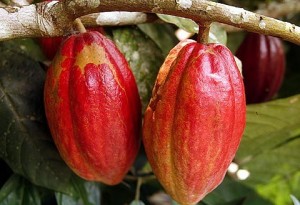IMANI launches report on revenue management in cocoa sector
 The IMANI Centre for Policy and Education has said revenue management and producer pricing mechanisms within Ghana’s cocoa sector needed to be examined to find out if farmers were getting value for their product.
The IMANI Centre for Policy and Education has said revenue management and producer pricing mechanisms within Ghana’s cocoa sector needed to be examined to find out if farmers were getting value for their product.
Mr Carl Duho, Research Consultant, IMANI, said cocoa contributed hugely to the country’s employment, with more than 800,000 cocoa farmers engaged in the sector and over 700 employees of COCOBOD and its subsidiaries.
He said the sector also contributed to export earnings for the economy, and the funds that came were key sources of liquidity support for the Bank of Ghana, contributing to poverty reduction.
However, there were a number of issues raised over time including the low yield gap that affects production over the years, disease and pest control infestation, government and political issues, dissatisfaction by farmers, thus the regulator (COCOBOD) had not achieved its most relevant goal of stabilizing the producer prices.
Mr Duho said this during the launch of a report on the revenue management and producer pricing mechanism within Ghana’s cocoa sector.
He said the report observed that the core financing figure had increased significantly in 2017 and 2018, adding that there was also a negative relationship between world price and production that could be explained by the forces of demand and supply.
Mr Duho said in general it realised that there was a declining level of profitability and worsening condition in terms of liquidity and the declined ability of COCOBOD to generate cash flow.
The study also revealed that only 20 per cent of farmers had knowledge about the producer price setting mechanism, about 88 per cent of them believed they did not have fair representation on the Producer Price Review Committee (PPRC), about five per cent acknowledged they had been paid a producer price lower than the announced producer price, and about 94 per cent were not satisfied with the current producer price.
There should also be an increase in the level of transparency on the price setting mechanism, he said, adding; “The PPRC should also help in providing clarity and explanations to pricing decisions. Policies should aim at diversifying the income sources of cocoa farmers in order to enhance their overall welfare.”
“The operational strategy of COCOBOD needs to be improved along the lines of efficiency and effectiveness over the medium term. Current plans by management should be followed through to the latter and the institution should work towards breaking even in the medium term”
According to the study to sustain production in the sector, youth involvement in cocoa cultivation must improve, as well as productivity enhancing mechanisms through technology.
He called for further extension services to be provided to farmers, given the current strategy to increase the output of the sector over the medium term.
Source: GNA
